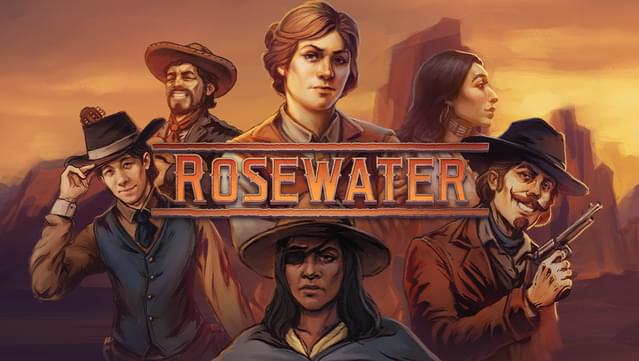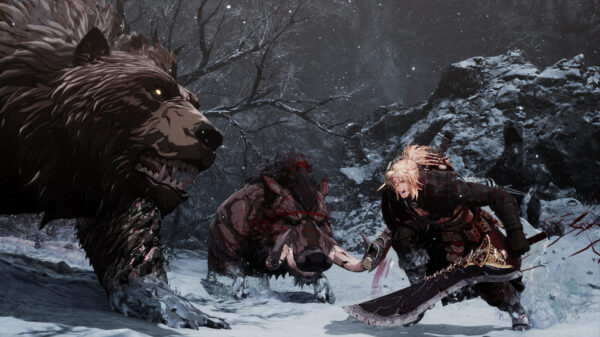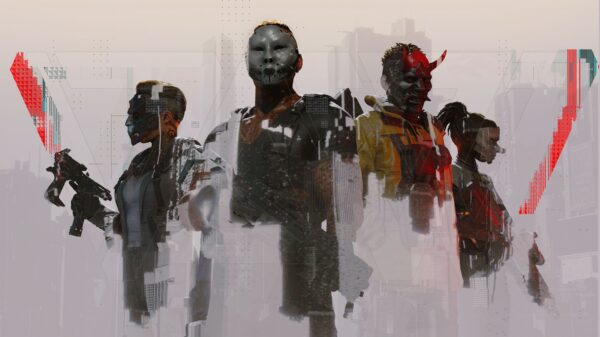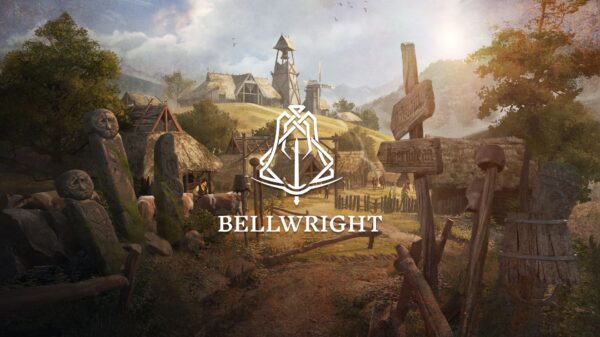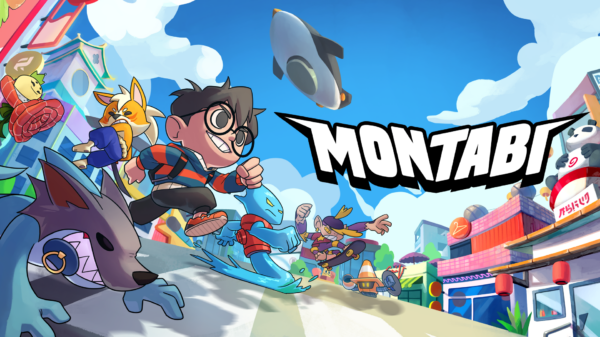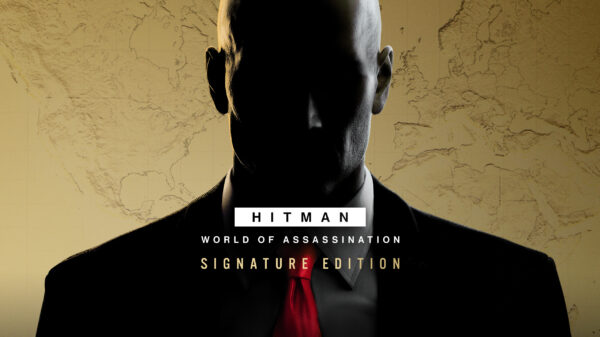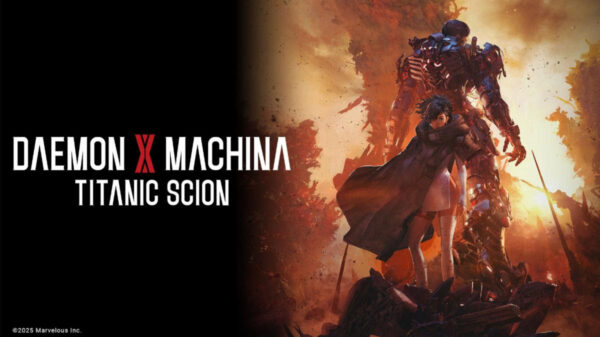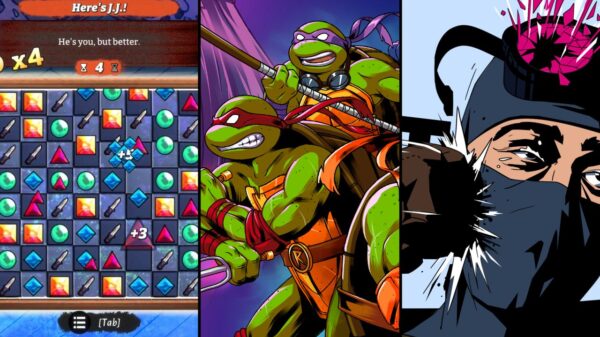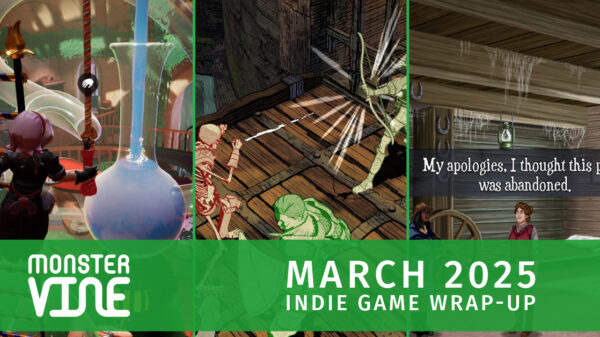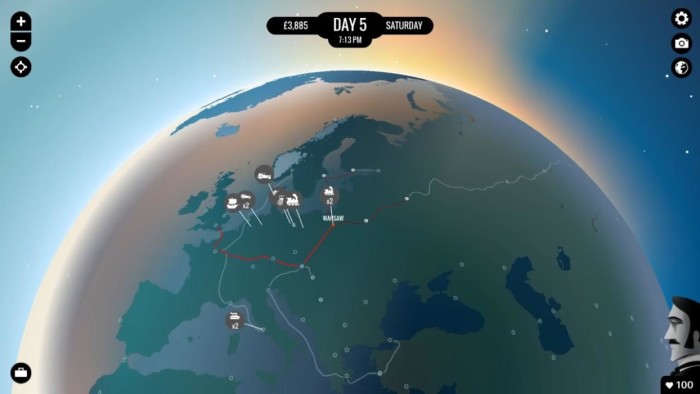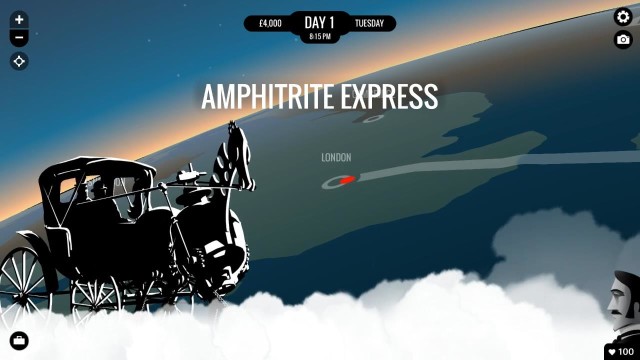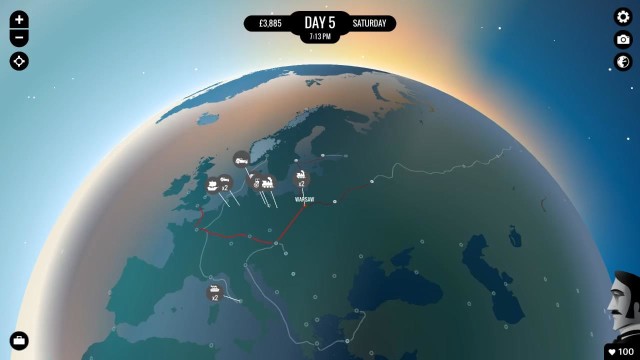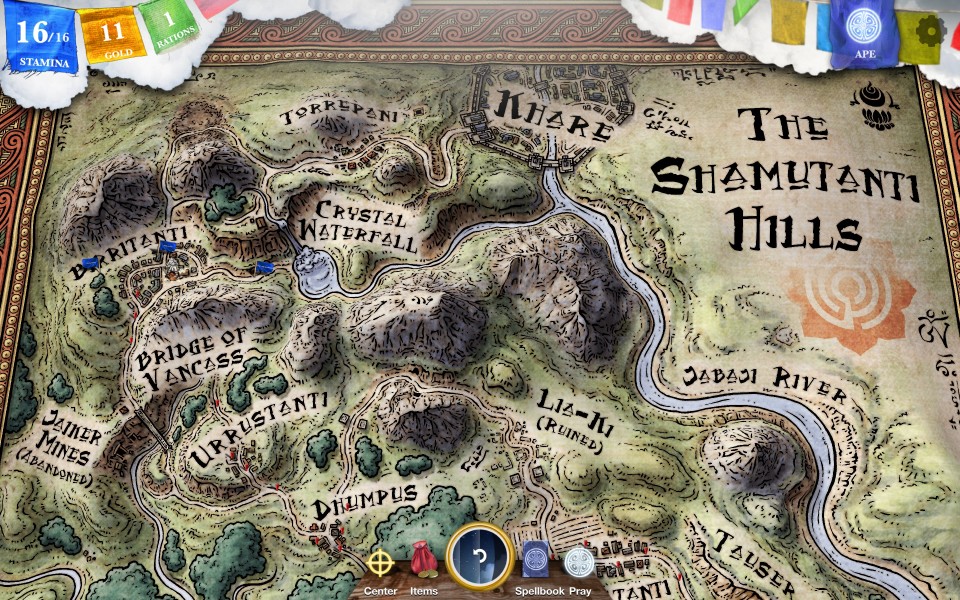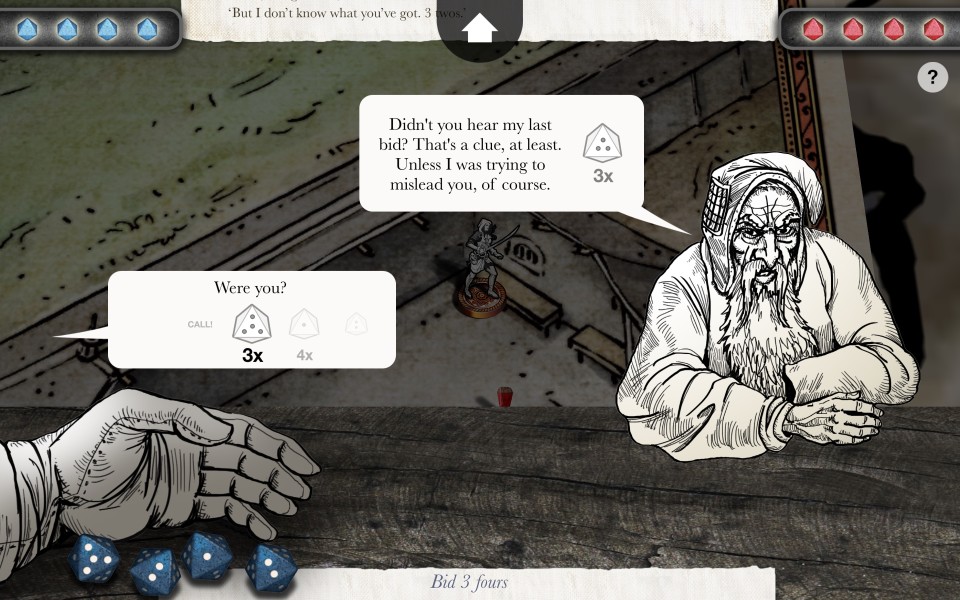With applause, much guffawing, and perhaps a tally-ho or two,80 Days has marched its way onto PC and Mac with aplomb. Winner of TIME Magazine’s Game of 2014, I think it’s about time we discovered what all the fuss is about. However we must be brief, there isn’t a moment to lose; this is a race after all.
80 Days
Developer: Inkle/Cape Guy
Price: $9.99
Platform: PC/Mac
MonsterVine was supplied with a PC code for review.
80 Days is a re-imagining of Jules Verne’s classic tale Around the World in 80 Days. Phileas Fogg has made a large wager with his British buddies that he possesses the ability to circumnavigate the world in 80 days or less. In truth, what he actually possesses is his faithful French servant Jean Passepartout, a man of undeniable talents both mundane and heroic. Passepartout also happens to be the character you play. Set in an alternate history with a heavy influence of steam-punk, this outrageous world is one in which you will just as likely find a Russian auto-bot army as houses with legs walking the streets of the Wild West. Having released first on iOS and Android, it is easy for some to lump this game into the same category as all the other badly optimised ports that hit the Steam store, but that would be a grievous mistake. Let me explain why.
80 Days pièce de résistance is the manner in which it tells its story (apologies, I’m channeling the French butler in me). Effectively the game plays out similarly to a choose your own adventure book. Every story event that occurs as you travel has a number of dialogue choices and actions that can be taken, as many as one option for every paragraph. With every decision your path branches, leading to a unique and completely different adventure every time. Your choices also lead characters to having different opinions of you, which in turn can affect story events in the future. Whilst this mechanic is great for adding variety, it also adds a whole other level of role-playing as time progresses. Are you going to be a jerk the whole time? The decision is all yours.
Although, don’t begin to assume 80 Days is just a story with pictures. There is a brilliantly clever game here. 80 Days finds its way into the gaping pigeon-hole that is a Rogue-lite, however I prefer to describe it as a narrative-driven management game. It revolves around 4 key elements; time, money, Fogg’s health, and travel routes.
As you reach a city on the globe, you need to have connecting routes already discovered in order to move forward. If you don’t, you need explore the city in order to get the information necessary. This is where a lot of story events happen and they really give a sense of the city and the alternate history we are experiencing. As you start traveling you are given the opportunity to have “conversations” with other NPCs. This is another efficient way to gain information about cities and routes.
Time obviously is key. This is a race! You only have 80 days to find your way back to London and that acts as a giant ticking clock that affects each of your decisions. Money is used to buy tickets and also can buy items from the “Markets” available when resting in a city. These items can affect future story events, grant you certain abilities and protect Fogg from the elements. You also buy products that are more valuable in other locations that can be sold for a profit. The trade-off here is your baggage space. As you can start to see, these elements are not distinct from one another. Rather, they are part of one larger balancing act you must carry out for the duration of the trip.
Banks are available for Fogg to withdraw money from, but due to red tape, require you staying in town for up to a week for the largest amount. This is a fantastic example of how you are constantly dipping into your resources of time, money or health in exchange for bolstering on of the others. What makes this even more difficult is that there are elements that take place in real time. For instance, often I found myself frantically trying to decide what to buy in the market and organise my baggage only to miss my departure by a few minutes. In this way, 80 Days keeps the pace and sense of urgency high throughout the journey.
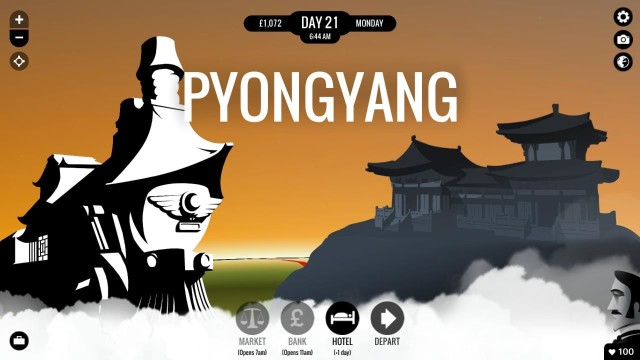
It only takes a glance to instantly see the striking visual design on offer. High contrast, animated silhouettes of city skylines and fantastical modes of transport make each step around the globe a delight on the eyes. In addition to that is the lovingly rendered 3D globe. The further you travel and more characters you interact with it becomes latticed with transport networks. All of these visual aspects make up the foundation for what is, for the majority, an internal imaginative experience. Like reading a book, the world, the characters and the action all take place in your head.
The music is paired wonderfully with the source material. A collection of global instruments make it a varied experience, but also one that consistently finds its way back to the staple of high adventure compilations. 80 Days is dripping with theme, and the music and sound design only add to that. However, I did find that at certain times there was a lack of audio which resulted in some events falling a bit flat (oh dear, I made a music pun).
Due to the huge amount of story events, locations and characters it is impossible to experience everything on offer in a single playthrough. Thankfully, 80 Days is focused on replayability. Each time you set off is a new opportunity to alter your play style and improve your score. Your route is yours to decide, allowing you to visit new cities and make discover new encounters. Do you want to head down through Asia and South America? You can! Do you want to swing by the North Pole? Agreed!
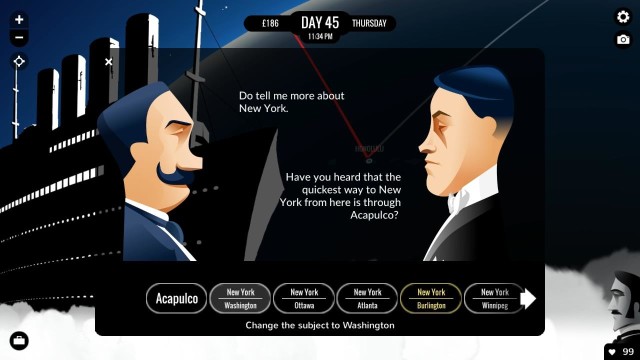
Your score is essentially how quickly you made it around the world, the final health of Fogg and how much money you borrowed along the way. You can post these scores to compare with other players, but not only that, you can see other players travelling the globe in real time. Whilst impressive to look at others whizzing across your discovered routes, I didn’t get the sense of it being a race between players.
Another criticism of mine is that it takes roughly 2 and half hours to complete a run around the globe. It’s quite a lengthy amount of time for something that may simply fall apart one city away from the finish line. Even when you are three quarters around the world it is very hard to ascertain whether you will make it or not, which keeps things tense, but may prove frustrating for some.
 The Final Word
The Final Word
All in all, 80 Days is a fantastic game. A nail-biting journey that has you circumnavigate the globe. An imaginatively created world and memorable characters make the experience one you will keep coming back to. Whilst there is a fair amount of text to read, the narrative is astounding. Not only is it beautifully written, but its large amount of content and interactive nature gives it a huge amount of replayability. Every first step out of London feels like a fresh and thrilling adventure.
– MonsterVine Rating: 4.5 out of 5 – Great

